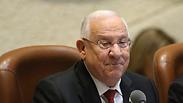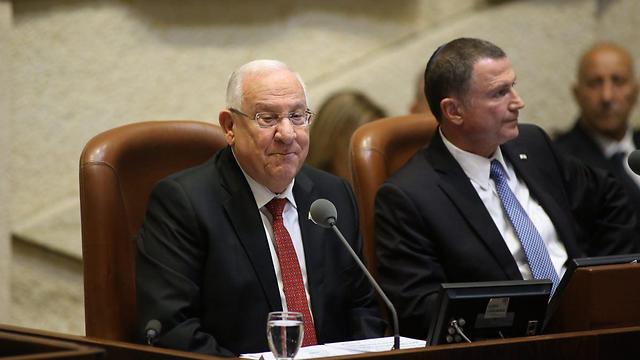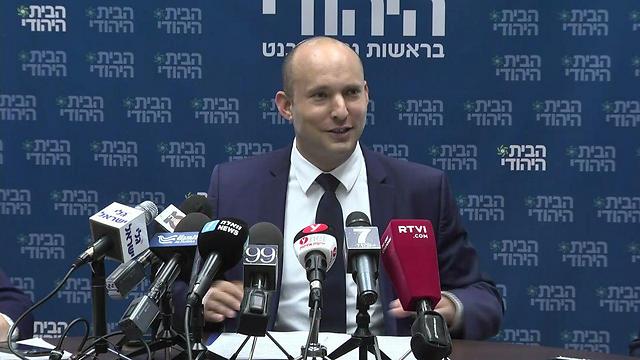Speaking in front of Israel's legislators during the opening meeting of the Knesset's winter session, Rivlin warned of the attempt done by the government and Knesset to politicize the State of Israel's different institutions.
"We are witnessing the winds of change, or a second revolution. This time, the majority rule is the only ruler. The whole country and its institutions are full of politics," the president said. "A new reality is being created in which everything is politicized—the media, the democratic institutions, all the way to the state comptroller—political. The Supreme Court—political. The security forces—political."
"This revolution seeks to finally rip the mask of alleged hypocrisy off the gatekeepers," Rivlin continued. "In this revolution, the ruler is also the victim. 'We'll show them' is the soundtrack of the revolution. The stateliness has gone from our country, after us the deluge."
He spoke of a chasm "between the responsible attempt to the define, after many years, the breach in the relationship between the legislative and judicial branches; to delineate judicial criticism; to ask questions about the mechanism through which the appointments of judges to reach a more varied and representative judges' panel, and between attempts to terrorize the court and weaken it, to actively invite the public to undermine its authorities and rulings. How can a threatened, conformist and toothless court be in the interest of the State of Israel? Of Israeli democracy?"
During a Bayit Yehudi party meeting earlier in the day, party leader Education Minister Naftali Bennett took aim at the Supreme Court, saying “there are judges in Jerusalem who have forgotten there is also a government in Jerusalem.”
Bennett outlined the fundamental goals of his party, saying he was determined “to pass the constitutional plan … that will return the power to govern back to the government. The government will govern, the Knesset will legislate and the judges will judge.”
Bennett, together with Justice Minister Ayelet Shaked (Bayit Yehudi), announced their intention to work in order to complete the constitution in Israel by advancing amendments that would prevent the Supreme Court from intervening on matters of legislation in the Knesset and impose practical limits on judicial censure.
According to Bennett and Shaked, the aim was to reinstate a balance between the three branches of authority in Israel, which would require the appendage of a brand new of the Basic Law on legislation, which they contend is missing from the Israeli constitution and is required to join the Basic Laws on the Knesset, the government and the judiciary.
“The Supreme Court is not supposed to intervene and tell us if it likes or doesn't like a specific law. That is the job of the Knesset,” Bennett said, spelling out his grievances before the journalists.
“The Supreme Court cannot nullify the will of the nation just because it doesn’t like this law or that law. The time has come to determine when the Supreme Court can disqualify a bill against the Knesset’s will and when it has to be approved by the Knesset. This will strengthen the State of Israel and we will work to codify it.”
Knesset Speaker Yuli Edelstein also addressed the issue from the podium at the Knesset. "Israel's separation of powers has become a myth, a legend. The Knesset's standing has been reduced to almost nothing," he asserted.
"We're at a point where we have no other choice but to stop and do something about it in this coming session in order to restore the separation of old. I beseech opposition members, don't forget that your frequent appeals to the High Court carry a heavy toll on our democracy," Edelstein added.



















